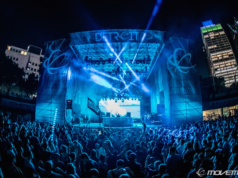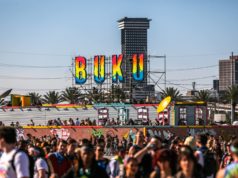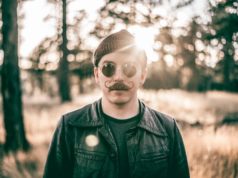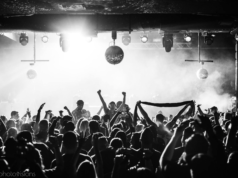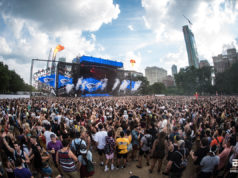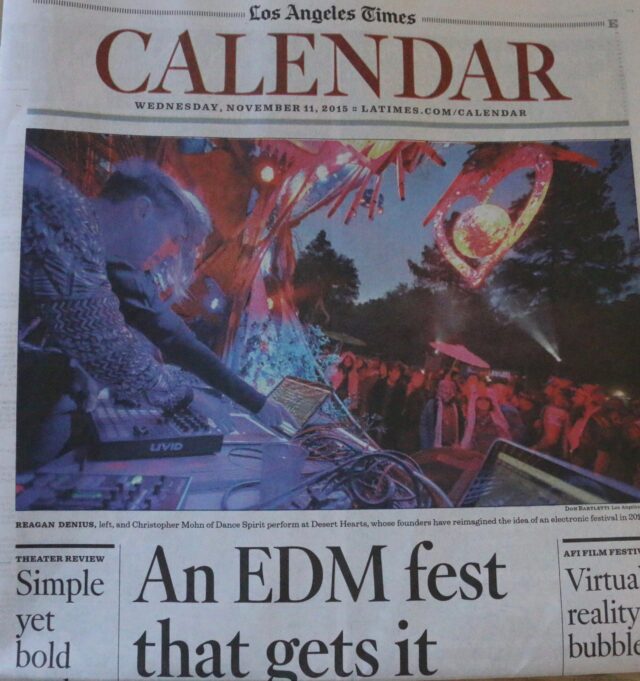
Back in the 60\’s when The Summer Of Love started on Haight and Ashbury, the new found counterculture had a purpose. These kids were watching their friends get sent off to fight and die in a war that had no purpose, by men like Richard Nixon who were literally criminals exploiting this country for their own means. Pair those negative truths with the music of the Beatles, Jimi Hendrix, the Grateful Dead and other legendary musicians who, in addition to promoting the use of drugs, wildly opposed the war, and the result was the hippies. A group of young adults who, despite all the fun they were having, believed the ideals of peace and love that they heard about in their music should be universally accepted.
The average \”respectable\” citizen living during that time condemned the hippies as a bunch of mismatched rebels, who were too lazy to wash themselves let alone get a job. They heard about Woodstock; about 400,000 naked people living in the mud for four days while a bunch of strung out musicians played their \”devil music\”, and thought something along the lines of:
\”Do these degenerates seriously think they\’re going to change the world?\”
Well, much to the dismay of those average \”respectable\” citizens, they did change the world.
Obviously, it wasn\’t a bunch of hippies who went to the White House and convinced Gerald Ford to pull the troops out of Vietnam, but the significance of their culture is something that can\’t be denied. That\’s why, 50 years later, companies like Goldenvoice, The Do Lab, and Desert Hearts are trying in some form or another, to promote those ideals by recreating gatherings like Woodstock, and when one looks back those 50 years, there are social similarities between then and now that are unavoidable.
Firstly, we are fighting an unnecessary war that was started under false pretenses. Granted one enormous difference that is not to be taken lightly between our current conflict and Vietnam is that our army today consists entirely of volunteers, but nevertheless, there is a more than significant chunk of the population that believes we should not be at war at all. To add to that point, we are living in a country where the wealthiest one percent of Americans control 99 percent of the money. Sounds an awful lot like \”The Man\” the hippies were stickin\’ it too back in the day.
Secondly, there is a new style of music that has utterly swept up the youth of this country: electronic dance music. Don\’t get me wrong, EDM is not even close to being worthy of one tenth of the respect that rock and roll got back in the 60\’s (yes I realize I\’m writing for an EDM website) but its hard to deny the effect that EDM is having on American youth, and how similar that effect is to rock 50 years ago.
Millions of young adults (and a few thousand older adults) went to their local three-day festival this season, and unless you were donning a cowboy hat, spurs, and had an unnecessary amount of beer with you, chances are that festival was a rave, or at least had a strong presence of electronic music. While hippies at Woodstock were saying \”Peace and love man\”, and throwing up their index and middle fingers with exuberant energy, ravers at EDC are saying things like \”PLUR and plurlife\” before trading handmade bracelets.
Admittedly, a large portion of the people attending these events don\’t really care about culture, they just want to have a good time with their friends. But what about the other people attending these events? The smaller percent of festival goers still consists of, for lack of a better term, nu-hippies. People who truly identify with the hippies of yesteryear. People who embrace the philosophies of astrology, nudism, environmentalism, meditation, and sonic healing. People who take pride in removing themselves from the confines of standard American society. People who truly believe in peace and love, and in todays festival scene, these people have a series of massives dedicated to their crowd including, Lightning in a Bottle, Symbiosis Gathering, and Desert Hearts Fest. These types of festivals have been dubbed \”Transformational Festivals\”.
After fully immersing myself in the festival scene this season (I went to 9 large scale events, 4 of which were multi-day camping festivals) I can say with confidence that given the amount of crossover I saw between them (The number of people at HARD Summer who were also at Lightning in a Bottle this year was astounding), the ratio winds up being about 55/20/25, with the your basic EDCers and Coachellites being the highest, the crossover in the middle, and the die-hard nu-hippies being the smaller end. But regardless of which category one person might fall into, that\’s still an enormous section of youth who see the value of uniting for the sake of music and good times. Besides, if you look into the hippie movement back in the 60\’s, its clear that the desire to have a good time in life is all it took to become a part of the summer of love. You just had make sure that loving the people around you was a vital part of your good time. As long as you found other hippies to have a good time with, you were a hippie. (Have you ever seen \’Hair\’?) Being a vegan who meditates everyday wasn\’t required.
Yet in today\’s world, whenever the youth try to unite in the name of change, it leads to calamities like \”Occupy Wall Street\” and the only things rising as a result of EDM\’s influence on youth culture are drug-related deaths and ticket prices. So where\’s the disconnect between then and now? Perhaps it can\’t be boiled down to one defining factor, but one thing I can say with confidence, is that the aforementioned smaller percent wants to remain the smaller percent.
Back in the 60\’s, other than giving the finger to the American establishment, the goal of the hippies was to spread the ideals of peace and love to everyone in the universe. That was the whole point. The Vietnam war represented that those ideals were dead, so the hippies held protests, burned draft cards, and gathered for giant music festivals to revive them. If someone who wasn\’t involved in the culture had an interest in becoming a part of it, hippies would welcome them with open arms and a fully packed bong.
Today, the previously described nu-hippies are more than happy to shut the door on newcomers in order to keep their circles tight, and preserve the vibes they hold so dear, which is where the hypocrisy lies.
(Disclaimer: as I\’m writing this, I am fully aware that the examples I\’m about to give do not extend to the entire of the transformational festival community, I merely find it disconcerting that such attitudes exist at all)
The festival where I found this attitude most prevalent was Lightning in a Bottle. The lineup for LIB this year, unlike years prior, included a series of very mainstream artists such as Flume, RL Grime, SBTRKT, Thomas Jack, AlunaGeorge, Griz, and ODESZA, which garnered the following reactions from regular LIB attendees:
\”I was legitimately pissed when I saw RL Grime on that lineup. Now so many bros are gonna go.\”
\”I wish people had to fill out applications to go to Lightning in a Bottle.\”
\”I don\’t even know if I want to go anymore.\”
Then, after the dozens of people that I know who were attracted by those artists expressed an intent to go to LIB for the first time, regular LIB attendees responded by saying this such as:
\”It\’s not like Coachella. I don\’t think you\’ll be able to handle it.\”
\”The terrain is too rough and its a lot of walking, I don\’t think you\’ll like it.\”
\”You probably won\’t fit in.\”
I was one of those first-timers this year and I can say definitively that yes, the camping situation is a little rougher than Coachella\’s 30\’ by 10\’ predesignated car spaces, but if you don\’t mind a few hills, theres nothing any festival fan with two legs wouldn\’t be able to handle.
Now, LIB is one of the flagship transformational festivals on the west coast and in the U.S.. Considering it advertises itself as \”California\’s Premier Summer Campout Festival\” while emphasizing yoga, educational workshops, art installations, and sustainability practices just as much as the music, reactions such as those seem to be hypocritical of a culture that is supposed to be full of acceptance and appreciation.
Just yesterday (11/11/15), Desert Hearts Three Year Anniversary was featured on the front page of the LA Times Calendar section. The headline read \”An EDM Fest That Gets It\”, and the article went on to detail how Desert Hearts has done such a good job isolating itself from the rest of the festival scene.
In the article Mikey Lion, one of Desert Hearts\’ founders, said:
\”Anything over 3,000 people just wouldn\’t feel connected.\”
And on the Desert Hearts website, under the \”FAQ\” section, one of the questions is \”How do I get added to your Facebook Community?\” Here\’s the answer:
\”You can request to be added on the page. Once the request is submitted our core team will review and decide upon it. We try to add everyone that we can, but simultaneously take pride in keeping our community a family based group. If you do not know many people in our group it will be harder to get added, so we recommend making friends with those involved.\”
I do understand the desire to keeping the community \”family based\”, but considering this is festival whose mantra (which members of said family can\’t get enough of) is \”House. Techno. Love.\”, it seems like they only have enough love to go around for 3,000 people, and they\’ll only really accept you if you get recommended by a current member of the family.
You know what that sounds like to me? A fraternity. You can only join fraternities if you get a bid from current members, and it\’s common practice for fraternity\’s to throw parties that are only open to current members. Look all over the country, you won\’t find a fraternity who has a mantra anywhere close to \”House. Techno. Love.\”
After attending numerous festivals this season, and for the past five years, I will admit there is value to wanting to keep festival circles tight like this. It\’s basic math. The more people that go, the more chance that there will be bad seeds who will make the festivals worse for the people around them. However, by attempting to close off so many people from a festival, you are denying other people the opportunity to have the same life changing experience in an effort to preserve your own. In my opinion, that\’s selfish. Perhaps someone who at first glance \”doesn\’t seem like they could handle it\” will be so inspired by the festival that they will go on to start their own event company and eventually put on an event that is just as special as the one they were originally kept away from. You just can\’t know unless you allow them to experience it for themselves.
Another concern from this community is related to the less than optimal behavior at other festivals that lead to arrests and overdoses, but even if a festival crowd is reduced to 500 people, its almost impossible that there will zero bad seeds at the festival. That certainly hasn\’t been the case of any festival I\’ve ever been too. I\’ve seen people get punched in the face at Coachella. I saw a guy put his elbow through a window at EDC Vegas. A friend of mine had 6,000$ worth of camera equipment stolen from him at Lightning in a Bottle (this was in 2014 too, before RL Grime was on the lineup). A series of paintings were stolen from the Dirtybird Campout, where there were only 4,000 people in attendance. Even at Symbiosis Gathering, I heard about people stealing stuff from the vendors, and Symbiosis crafted the most wonderful environment I have ever been a part of for their 10 year Re:Union. Seriously, the vibes were so pristine you would feel warm sunshine flowing inside of you 100 percent of the time, and everyone you met was full of knowledge and love to give. Desert Hearts works harder to prevent this than any fest I\’ve come across, and I wasn\’t there to see, but at the end of the day it\’s a ticketed festival. Anyone could go if they have the money, and just because people aren\’t getting arrested or sent to the hospital, it doesn\’t mean there weren\’t assholes who made the fest worse for other people.
Taking into account the reality that no festival will ever be completely devoid of people like this, It seems to me that best attitude to have towards any festival would be to approach it with open arms and an open mind. If I have noticed such a strong presence of this \”closed group\” mentality in the transformational festival scene, then there\’s no way that I\’m the only one. Perhaps if people were more accepting to newcomers, that positive attitude would rub off on the bad seeds, thus preventing them from acting in such a way.
But most of all, by co-opting a mindset of derision and isolation, the possibility of meaningful change is being prevented, and I don\’t just mean change within the festival scene. I mean real, earth shattering, our-world-will-never-be-the-fucking-same change.
If the hippies could do it in the 60\’s without any tool that even came close to the power of the internet, why can\’t we? We have the numbers, and we have the musical means to unite them. I don\’t think there is a single person who went to a festival this season who wouldn\’t agree that this world needs to start heading in a new direction. The problem is that the people who believe it more than others would rather sit in their little circles and talk about it amongst themselves instead of leading others to realize the same thing through love and acceptance. So many people who are transformational fest purists pride themselves on that fact to such a degree that they forget how much they have in common with the ravers.
What did John Lennon say again? Oh right it was:
\”You may say I\’m a dreamer/But I\’m not the only one/I hope someday you\’ll join us/And the world will be as one\”.
Unless I\’m dyslexic, there\’s nothing in there about how some people couldn\’t handle the camping cause it\’s a bit rougher than Coachella.

